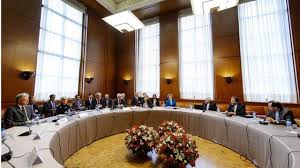Nuclear talks with Iran productive

US Under Secretary of State and top American negotiator at the nuclear talks with Iran Wendy Sherman has described the negotiations with the Islamic Republic as “productive” and “substantial.”
Iran and six world powers have been holding negotiations to resolve a decade-long dispute over the Islamic Republic’s nuclear energy program.
During an interview with US-based think tank Aspen Institute on Wednesday, the senior US diplomat emphasized that the main purpose of the nuclear negotiations with Tehran is to “assure the international community that if Iran has an enrichment program, it is exclusively peaceful and its nuclear program is exclusively peaceful.”
Iran has repeatedly insisted on the exclusively peaceful nature of its nuclear energy program.
Sherman further referred to a recent report by the International Atomic Energy Agency (IAEA) “saying that for the second consecutive month that Iran has kept all its commitments and so has the P5+1,” referring to the six countries in talks with Iran.
China, France, Russia, the UK and the US are the five permanent members of the UN Security Council that are, along with Germany, participating in the nuclear talks with Iran.
Sherman added that the IAEA report helps build confidence in reaching a comprehensive agreement by the July 20 deadline, when an interim agreement reached between Iran and the P5+1 expires. She was referring to the nuclear deal clinched last November between the two sides.
Under the interim accord, which took effect on January 20, the six world powers undertook to provide Iran with some sanctions relief in exchange for the Islamic Republic’s agreement to limit certain aspects of its nuclear activities during a six-month period.
Citing “decades of mistrust,” however, Sherman expressed doubt that Washington and Tehran can overcome major differences between them even if they can achieve a comprehensive agreement on the nuclear issue.
The US official also criticized Iran for what she called human rights violations in the country and also Tehran’s support for the Lebanese resistance movement of Hezbollah.
Tehran has repeatedly rejected as baseless and politically motivated, claims of human rights violation.







